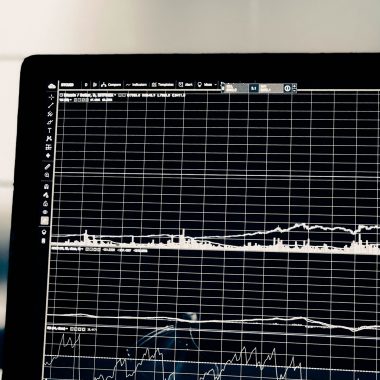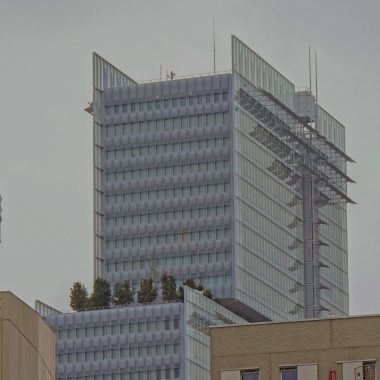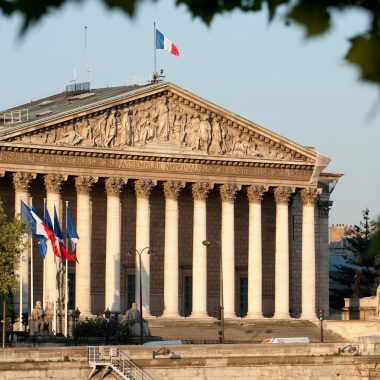The documentary ‘Gérard Depardieu, la Chute de l’ogre’ broadcast on France 2 acted as a catalyst, attracting the attention of 1.52 million viewers and triggering an avalanche of debate in the Depardieu affair. Beyond the glaring errors, questionable media posturing and attempts at rehabilitation, an ideological confrontation and media war are taking shape.
From #MeToo to #Depardieu
Since the rise of the #MeToo movement in 2017, the Depardieu affair has taken on unexpected proportions. The figures bear this out: there were more than 87,000 mentions of #Depardieu in the digital sphere just 24 hours after the documentary was broadcast on 7 December.

Analysis of the online conversations also highlights several critical points:
● Blaming the victims and minimising the harm caused by Depardieu’s actions is one of the recurring themes. Some users suggesting that the women involved were somehow responsible for what happened to them.
● Also of note, many users express frustration and disappointment at the lack of support and resources available to survivors of sexual violence.
● Emphasis is also placed on the cultural context and societal norms that allegedly enable and perpetuate sexual violence, with some users stating that the problem goes beyond the individual and reflects systemic issues.
The war of opinions
The media treatment, crystallised by the immediate reactions on social networks after the documentary was broadcast, underlines the scale of the impact on the public. The ensuing opinion polls intensified the debate, creating a veritable battle of opinions.
The revelation of the first images of the documentary on X generated 2,000 comments, 11,000 shares, 11,000 likes and 14.2 million views.
“J’ai une poutre dans le caleçon !”
🔴 #ComplementDenquete a récupéré des images jamais dévoilées de Gérard Depardieu lors d’un voyage en Corée du Nord en 2018.
L’acteur a multiplié les commentaires obscènes à l’encontre des femmes qu’il croise.
▶️ Ce soir à 23h sur France 2 pic.twitter.com/dtOrb2AHF3
— Complément d’enquête (@Cdenquete) December 7, 2023
#1 The tribune of discord, a strategic manoeuvre to influence public opinion
Gérard Depardieu’s open letter concluded with a significant statement: ‘To the media tribunal, to the lynching that has been reserved for me, I have only my word to oppose.’ This direct statement tends to position the author as the victim. In other words, a clever strategic lever for shaping public opinion.
The choice of words in this statement adds a particular dimension, being punctuated by striking illustrations, such as when Depardieu declares: ‘Today I can no longer sing Barbara because a woman who wanted to sing Barbara with me accused me of rape.’ These vivid images, sprinkled throughout the text, are intended to elicit deep empathy in the reader, who thus seeks to establish an emotional connection. It’s a deliberate attempt to win the public’s understanding and support.
This strategy, although controversial, does not fail to raise questions about the nature of truth in a media context often conducive to hasty judgements.
#2 Presidential defence: the rhetoric of rehabilitation
The President’s statement has only deepened the rift in public opinion. A disruptive counterpoint that has generated heated conversations. Under fire for his statements, the President, denouncing a ‘manhunt’, opted for a rhetoric of rehabilitation. This is how he spoke on France 5, using a laudatory tone and eulogistic terms to describe the actor, declaring himself a ‘great admirer’ of the man who has ‘made France and our great authors known throughout the world’.
Online reactions testify to the impact of this presidential stance. Franceinfo’s publication on X generated 30,000 views and over 400 interactions.
🔴 Affaire Depardieu ➡️ Les propos d’E. Macron “revient à cracher au visage de toutes les victimes. On peut être un grand acteur et un agresseur sexuel”, dit Sophie Binet. “La présomption d’innocence est instrumentalisée pour museler les victimes.” #8h30franceinfo pic.twitter.com/E9e2fMhrxT
— franceinfo (@franceinfo) January 9, 2024
The French President’s stance has undeniably fuelled debate and accentuated divisions within the film industry. According to an Elabe/BFMTV poll, half of French people believe that the Head of State has been ‘too supportive’ of Depardieu, while 22% consider his comments to be ‘balanced’ and 28% have no opinion.
The MeToo Media association, which defends victims of sexual violence, strongly criticised the President’s stance in an opinion piece published on 27 December, arguing that it privileged the popular actor to the detriment of anonymous victims. Muriel Réus, vice-president of the collective, said that the President was stepping out of his role by denying the voice of victims, describing this attitude as unacceptable.
The President’s support comes at a time of political turmoil at the Élysée Palace, particularly following his defence of the immigration law.
#3 From support platform to plea
In this media epic and in the face of escalating tensions, fifty eminent figures from the world of culture have in turn united their voices in a tribune, pleading for the preservation of Gérard Depardieu’s reputation. The title, revealing and unequivocally affirmative, bears the mark of a strong stance: ‘N’effacez pas Gérard Depardieu’ (‘Don’t erase Gérard Depardieu’).
The text, peppered with ambiguous and sometimes contradictory periphrases such as ‘the last sacred monster of cinema’, oscillates between the recognition of an exceptional talent and the caution, even danger, aroused by the use of the term ‘monster’. This ambivalence underlines the complexity of the character and the situation.
In expressing their support, the signatories used a lexical field tinged with violence, evoking expressions such as ‘lynching’ and ‘torrent of hatred’ to encourage empathy. This semantics is heightened by its association with dramatic turns of phrase and strong personifications, such as the statement that ‘it is art that is being attacked’. Like a solemn speech, the text reaches its climax with a conclusive ascending gradation: ‘The death of art. Ours.’
From a tribune of support to a plea, the signatories thus maintain the affair by making Gérard Depardieu the very embodiment of culture.
#4 The counter-tribune
In reaction to the actor’s support, 8,000 artists signed the counter-tribune launched by the collective ‘Cerveaux non disponibles’ in 48 hours, with 103k subscribers on X. The post generated 249 comments, 530 shares, 1,000 likes and 252.5k views.
8000 artistes ont donc signé notre tribune collective en 48H. Un mouvement de solidarité et d’adelphité qui réchauffe nos cœurs et nous rassure, quelque peu, sur le champ des possibles de notre futur commun.
1/4 pic.twitter.com/7wlThzYkhC— Cerveaux non disponibles (@CerveauxNon) December 31, 2023
This topic has generated more than 81.4k mentions on the web since 7 December (Talkwalker). What can we learn from this new publication and the online conversations?
● The signatory artists have pointed the finger at ‘the law of silence surrounding the affair’.
● They call for justice and share their support for victims of sexual violence.
● They highlight the alleged role reversal in the media coverage of the affair and insist on the need for artists to assume their responsibilities and denounce injustice.
Used wisely, the forum proved to be a real lever for influencing public opinion. The terms most frequently used in the context of the Depardieu affair underline this appropriation by the media and civil society: ‘tribune’, ‘reportage’, ‘Figaro’, ‘BFMTV’, and ‘France Info’, but also more moralising terms such as ‘shame’, ‘sexist’ and ‘honour’.

This rise in power, largely amplified by the influence of the media, has led to a change of heart among the 60 or so initial signatories of the support statement. Whether as a result of media pressure or the awareness of the signatories, one thing is certain: the politicisation of the affair has shaken the initial positions.
Ultimately, one of the major questions at the heart of this battle of opinions remains the following: is it possible to separate the man from the artist? A question which, in this context, raises complex and moral challenges, and inevitably gives grist to the media, political and digital agora.










